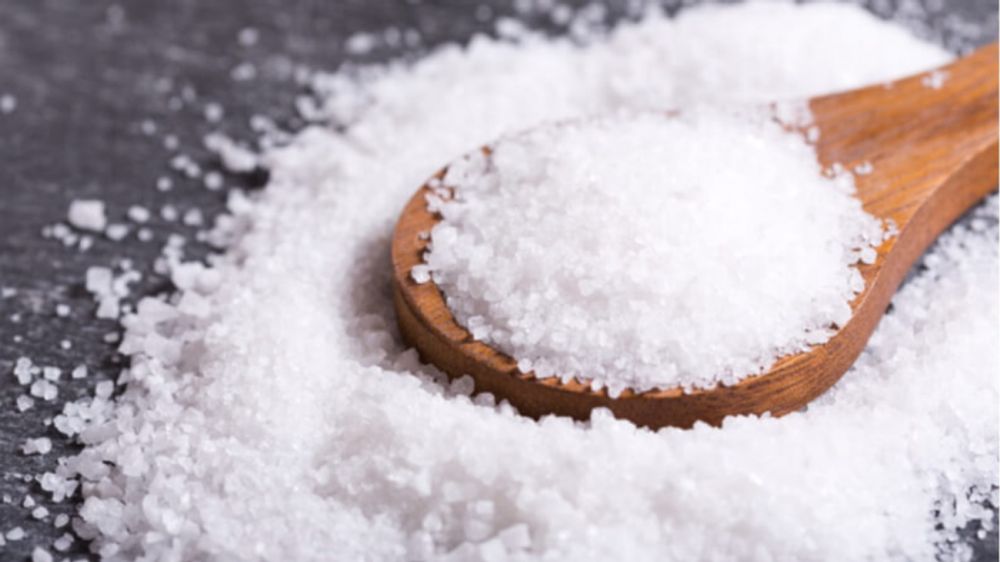

Salt is a compound comprised of around 40% sodium and 60 percent chloride. Sodium is a fundamental supplement, yet vegetables and other normal food varieties give the limited quantities of sodium you want in your eating regimen. On the off chance that you drink excessively, it can cause water maintenance, and your body might answer by raising your pulse to push the abundance liquid and salt out of your framework.
For the initial 90% of human development, we probably ate consumes less calories containing not exactly what could be compared to a quarter teaspoon of salt of sodium daily. Why? Since we probably ate for the most part plants. We went a long period of time without saltshakers, so our bodies developed into sodium-moderating machines. That served us well until we found that salt could be utilized to protect food varieties. Without refrigeration, this was a help to human development, however where does that leave us now? All things considered, we never again need to live off pickles and jerky.
 appear to be hereditarily modified to eat multiple times less sodium than we do now. Some purported low-salt weight control plans can really be viewed as high-salt eating regimens. That is the reason it's basic to comprehend what the idea of "typical" is with regards to sodium. Having a "typical" salt admission can prompt a "ordinary" circulatory strain, which can add to us kicking the bucket from all the "typical" causes, similar to cardiovascular failures and strokes.
appear to be hereditarily modified to eat multiple times less sodium than we do now. Some purported low-salt weight control plans can really be viewed as high-salt eating regimens. That is the reason it's basic to comprehend what the idea of "typical" is with regards to sodium. Having a "typical" salt admission can prompt a "ordinary" circulatory strain, which can add to us kicking the bucket from all the "typical" causes, similar to cardiovascular failures and strokes.
On the off chance that we could cut our salt admission by about a half teaspoon daily, which is reachable by keeping away from pungent food varieties and not adding salt to our food, we could forestall 22% of stroke passings and 16 percent of lethal cardiovascular failures. That is possibly a bigger number of lives saved than if we had the option to effectively treat individuals with circulatory strain pills.
The proof that sodium raises pulse is clear, including twofold visually impaired, randomized preliminaries going back many years. In the event that we take subjects with hypertension and put them on a sodium-limited diet, their pulse drops. In the event that we keep them on the low-salt eating regimen and add a fake treatment, nothing occurs. In any case, on the off chance that we rather give subjects salt as a period discharge sodium pill, their pulse returns up once more. The more sodium we give them furtively, the higher their pulse climbs.
Indeed, even a solitary feast can make it happen. Assuming we take individuals with typical circulatory strain and provide them with a bowl of soup containing how much salt that might be found in a normal American dinner, their pulse moves over the course of the following three hours contrasted with eating a similar soup with practically no additional salt. That's what many comparative examinations show assuming you decrease your salt admission, you might diminish your circulatory strain. Furthermore, the more noteworthy the decrease, the more noteworthy the advantage might be. In any case, in the event that you don't chop down, persistent high salt admission can prompt a continuous expansion in pulse over the course of life.
How could we initially learn of this? Enter Dr. Walter Kempner and his rice-and-natural product diet. Without drugs, he carried patients with eye-popping blood pressures like 240/150 down to 105/80 with dietary changes alone. How is it that he could morally keep medicine from such genuinely sick patients? Current hypertension pills hadn't been created at this point! Dr. Kempner led his work, harking back to the 1940s. He had the option to turn around the course of illness with diet in excess of 70% of cases. However the eating regimen wasn't just very low sodium — it was likewise rigorously plant-based and low in fat and protein — Dr. Kempner is presently perceived as the individual who laid out, past any shadow of uncertainty, that hypertension can frequently be brought down by a low-sodium diet.
Notwithstanding hypertension, pungent dinners can essentially disable course capability, even among individuals whose pulse will in general be lethargic to salt admission. At the end of the day, salt itself can harm our courses free of its effect on circulatory strain. Also, that mischief starts in thirty minutes or less.
The data on this page has been arranged from Dr. Greger's examination. Hotspots for every video recorded can be viewed as by going to the video's page and tapping on the Sources Cited tab. References may likewise be found at the rear of his books.
